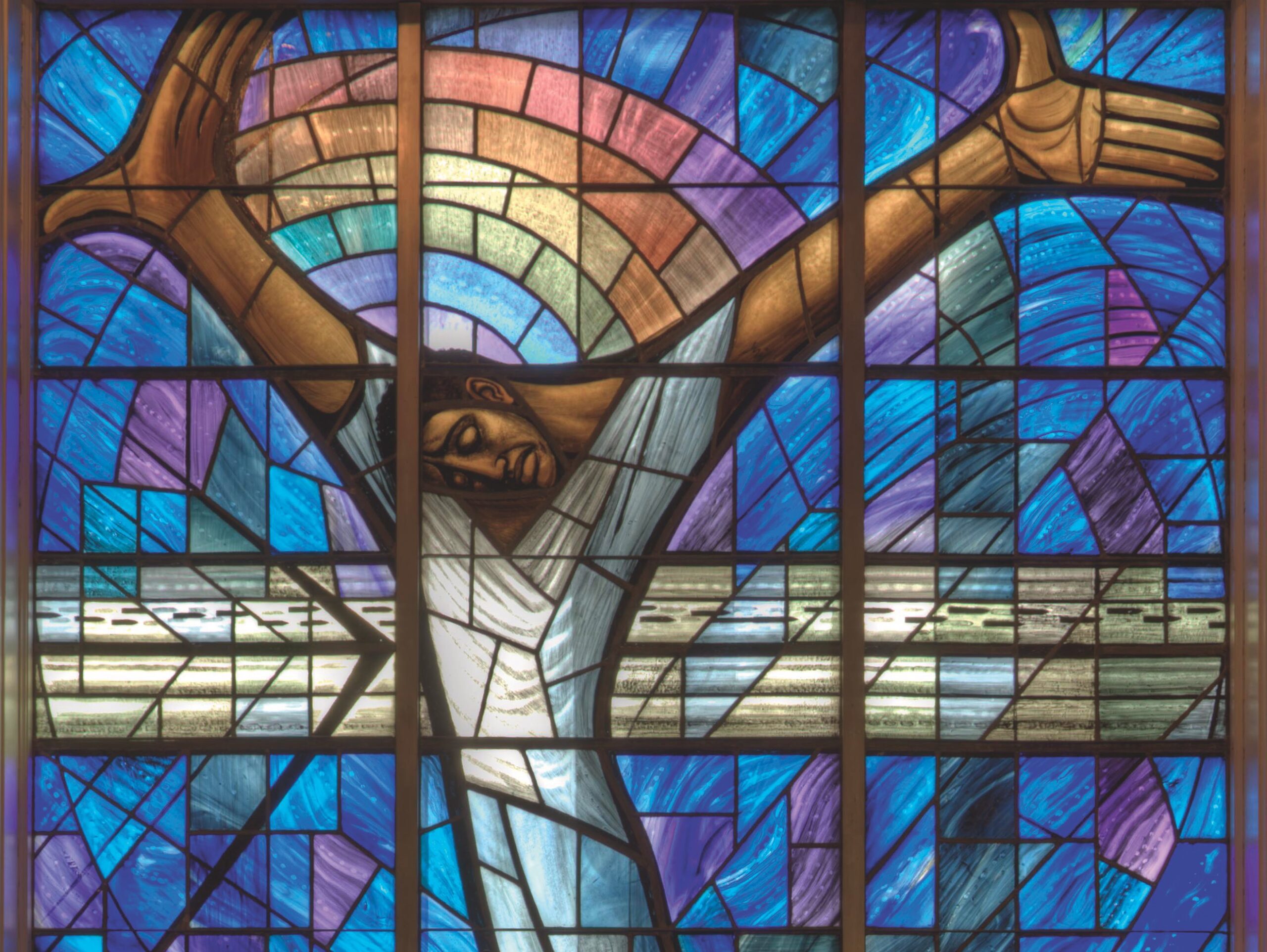My mother loves to recount the heroic story of how she and other Black moms camped out in shifts at a Scarborough, Ont., Simpsons to get my Cabbage Patch doll in the 1980s. I love that Cabbage Patch. Her name is Renee, and we share the same button nose and beautiful brown skin tone. When I was in congregational ministry in downtown Toronto, I would swaddle Renee and lovingly place her in the crèche every Christmas. “Why is our Jesus always Black?” asked a seven-year-old congregant one year. “Well, because it is my Jesus,” I answered.
My Jesus has always been Black, but I don’t remember articulating it until that day. Jesus is my redeemer: his teachings have liberated me from oppressive ideologies, and his ministry has opened life-giving paths. Jesus is also my closest and most trusted confidant. When I am at my lowest, I talk to Jesus in my prayers. In order for Jesus to be my redeemer and my brother, I need him to be Black.
You may unsubscribe from any of our newsletters at any time.
More on Broadview…
- White Jesus is grounded in colonialism. Black Jesus is rooted in liberation.
- Why I find it hard to accept a Black Jesus
- As a married, queer Catholic, I don’t know how much more hurt I can take
When Jesus is manipulated into a benevolent white man, we as a church are asking racialized people to be reliant on a white person for their liberation. I cannot subscribe to that. If my liberation depends on my oppressor then I am not truly free.
Of course, Jesus is not my oppressor, but the symbolic white Jesus, and the church he represents, is. Painfully, the church in North America has planted, nurtured and spread much oppression. When I see a white Jesus, I am reminded of the horrific legacy of colonialism and enslavement. European explorers tried to find theological justifications for their treatment of the people they met on their travels. Within British colonies, missionaries notoriously taught a thin Bible to enslaved people. They deleted stories of liberation and equality, and emphasized stories of obedience and submission.
Slavery existed across British colonies, but often white Canadians, both in and outside the church, talk about enslavement by fixating on the Underground Railroad. They are quick to damn the American South while ignoring the enslavement of people within Canada. They focus on the Underground Railroad that went north rather than the one that went south to Mexico. They focus on the “magical” resilience of Black people without naming the horrific suffering and loss of life that happened throughout the continent.
This selective narrative centres Canada as a benevolent, gentle hero, which allows whiteness to remain in a place of
power, like the white Saviour. This perspective also allows white Canadians to talk about Black history without having to wrestle with the experiences of Black people in Canada or accept the data that challenges the idea of Canada being the Promised Land for Black people.
As a child, I could not articulate the struggle of being Black in Canada or how isolating that can be. But I could confide in Renee, my Black Cabbage Patch, in a way that I could not with my white dolls. We shared a kinship similar to the affinity I have with my Black Jesus.
Perhaps that is why Renee sparked one of the best conversations I have had in my ministry all those years ago. In the end, the young congregant, her Sunday school teacher and I decided that Jesus, in his work to heal and redeem all of Creation, can be Black while representing other oppressed groups.
Ultimately, I believe Jesus transcends race, a social construct of a broken world. In my ministry, I ardently attempt to work toward a mended society without the sin of racism and other forms of oppression. Until that day comes, my Jesus needs to be Black.
Alydia Smith is a program co-ordinator for The United Church of Canada in Toronto.
This story was first published in Broadview’s April/May 2021 issue with the title “Why I need my Jesus to be Black.”















How can Christians honestly reverse-designate the skin colour of a mxn who lived 2,000 years ago and, by historical account, was probably a typical middle-eastern Jew. Making Jesus Black should also be repulsive to Asians and First Nations, not just Caucasians. I wonder to what extent such racial insistence leads to an overall rejection of Jesus entirely, both within churches and in the world generally. By contrast, Hindus don’t appear to get hung up about the blue skin of their androgynous divine Shiva.
When Jesus is manipulated into a benevolent white man, we as a church are asking racialized people to be reliant on a white person for their liberation. I cannot subscribe to that. If my liberation depends on my oppressor then I am not truly free.
What about those who need Him to be white? (Sorry, I forgot, this doesn’t matter any more.) They now have oppressors who tell them they are oppressive.
The Church of the Flying Spaghetti want their Jesus to be green, and the LGBTQ want Him to be multicolored, now what should we do?
We’re in a lot of trouble in Heaven when we are all required to wear a white gown (Revelation 19). Who will be the oppressor then?
This is the third story in Broadview that is an attempt to racialize Jesus during the lent season. Deliberating pitting white christians against black. Not buying it. If you are going to make accusations of white ministers who manipulate Jesus into a benevolent white man as you allege you need to start providing concrete evidence of this. Your a black minister. I am white. When it comes to Jesus I have only one standard by which I would listen to what you say about him. Are you preaching the gospel (kerygma)? There is no need to follow him if he is a dead wise teacher. And it wont matter if he is black or white.